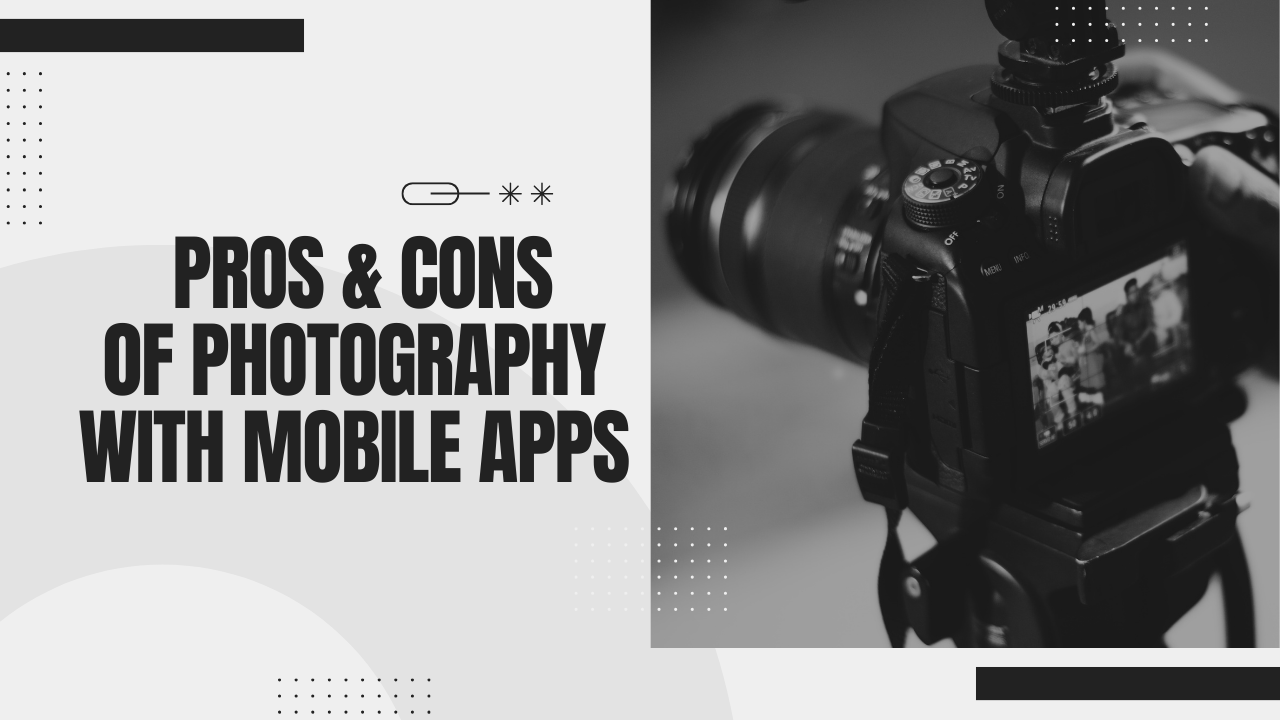Pros and Cons of Photography with Mobile Apps
 |
Pros of Photography with Mobile Apps:
1. Accessibility: Mobile photography apps are readily available on smartphones, making it easy for anyone to start taking photos without the need for expensive camera equipment.
2. Convenience: Carrying a smartphone is much more convenient than lugging around a dedicated camera and accessories. This convenience ensures that you're always ready to capture moments as they happen.
3. Instant Sharing: Mobile apps often include built-in social sharing features, allowing you to quickly share your photos with friends and family on social media platforms or through messaging apps.
4. Editing Tools: Many mobile photography apps offer a wide
range of editing tools and filters, allowing you to enhance and personalize
your photos directly on your device.
5. Real-Time Feedback: Apps often provide real-time feedback
through live previews, grids, and histograms, helping you compose and expose
your shots more effectively.
6. Portability: Mobile photography allows you to travel
light while still being able to capture high-quality images. This is
particularly advantageous for travel and street photography.
7. Integration: Mobile apps seamlessly integrate with other
smartphone features like GPS for geotagging, accelerometers for orientation,
and touchscreens for intuitive controls.
Cons of Photography with Mobile Apps:
1. Limited Hardware: While smartphone cameras have improved
significantly, they still have limitations compared to dedicated digital
cameras, especially in terms of sensor size and lens capabilities.
2. Image Quality: Mobile photos may suffer from issues like
noise, limited dynamic range, and artifacts, particularly in challenging
lighting conditions.
3. Lack of Manual
Control: While some apps offer manual
controls, most smartphone cameras have limited settings for adjusting exposure,
aperture, and shutter speed, limiting creative possibilities.
4. Battery Drain: Using photography apps can quickly drain your
smartphone's battery, especially when shooting in high-resolution or using features
like flash and GPS.
5. Storage Space: High-resolution photos and videos can consume
a significant amount of storage space on your device, potentially leading to
the need for frequent transfers or upgrades.
6. Overreliance on
Filters: While filters can enhance
photos, an overreliance on them can lead to a lack of originality and
creativity in your photography.
7. Professional
Limitations: Mobile photography apps may
not meet the demans of professional photographers who require specialized
equipment and features for their work.
8. Print Quality: Mobile photos may not always have the
necessary resolution and image quality for large-format prints or professional
publishing.
In conclusion, mobile photography apps offer accessibility,
convenience, and a wide range of creative tools for capturing and editing
photos. However, they also come with limitations related to hardware, image
quality, and manual control. The choice between using mobile apps and dedicated
cameras depends on your photography goals, preferences, and the level of
quality and control you require for your images. Many photographers find that
mobile photography complements their work, allowing them to capture moments on
the go while still relying on dedicated cameras for more demanding projects.
Comments
Post a Comment